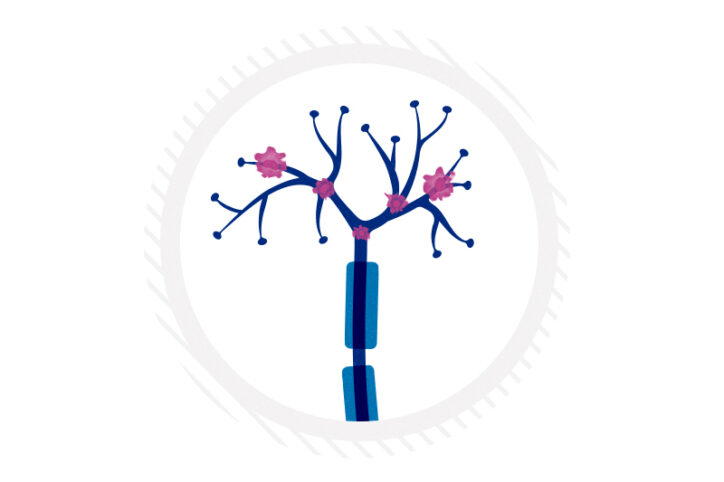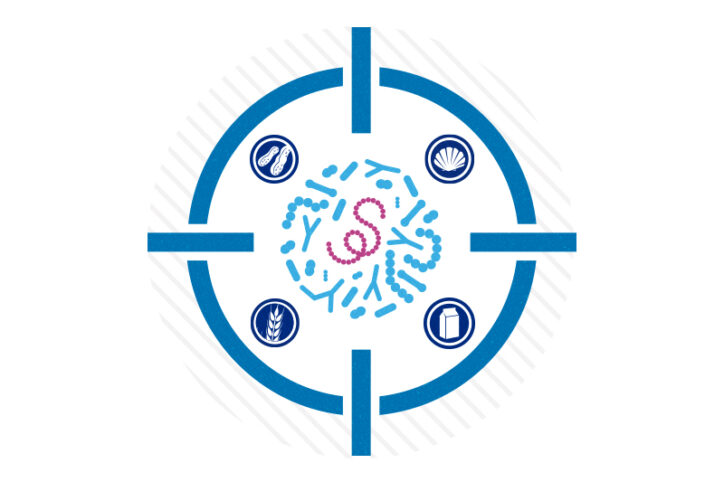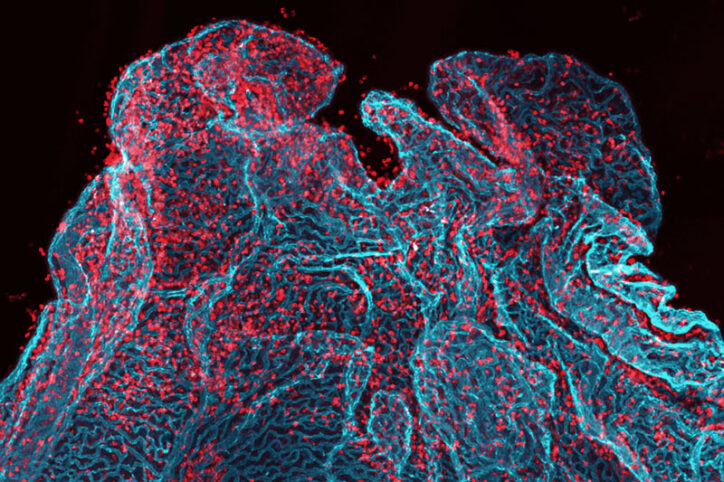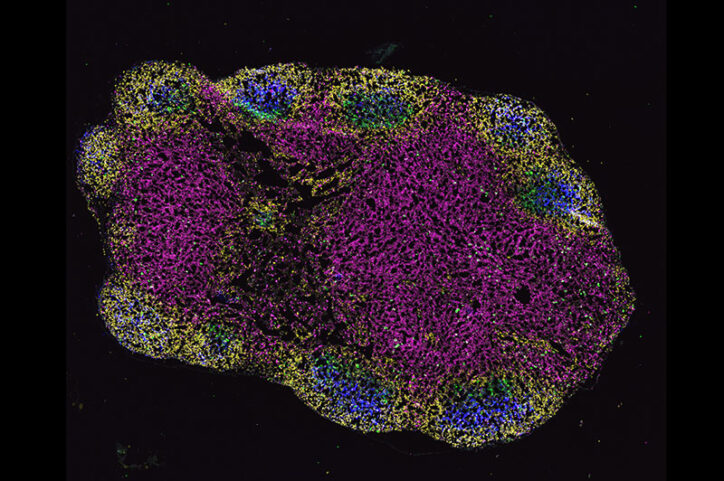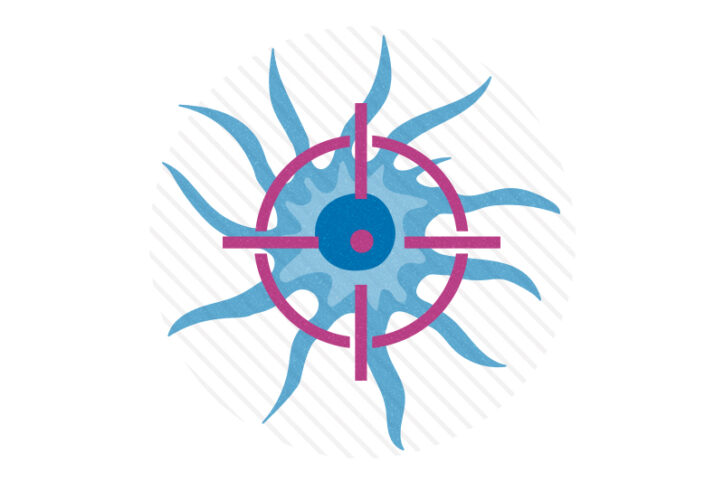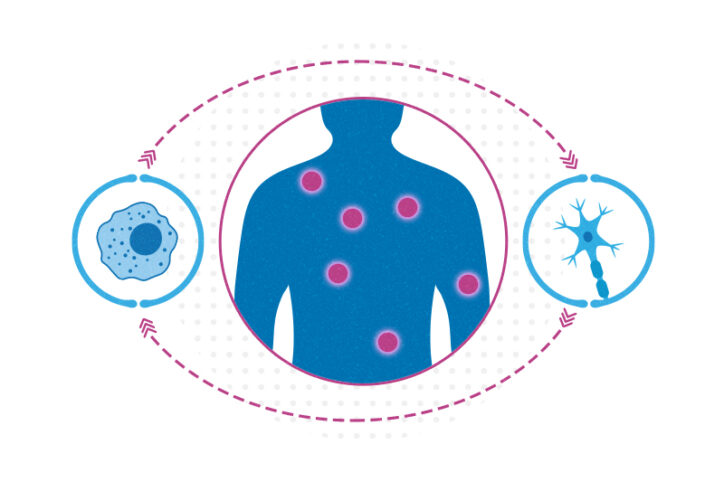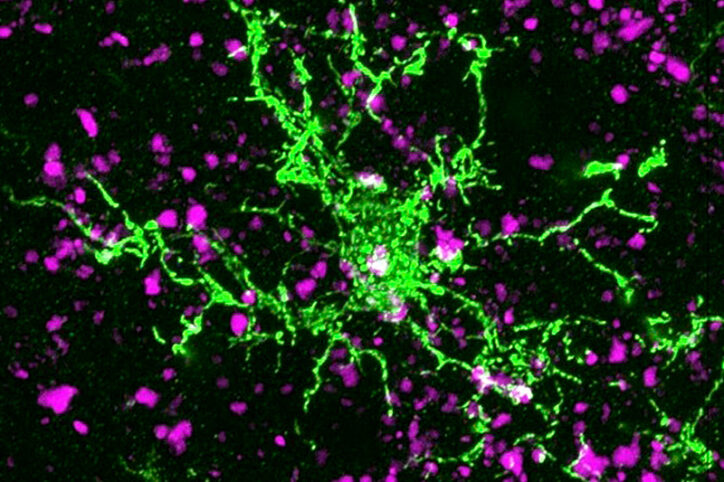Archive for immunology
A surprising link between Crohn’s disease and the Epstein-Barr virus
Crohn’s disease, a debilitating inflammatory bowel disease, has many known contributing factors, including bacterial changes in the microbiome that foster an inflammatory environment. Now, for the first time, Crohn’s disease been tied to a virus — specifically, Epstein-Barr virus (EBV), best known for causing infectious mononucleosis (mono). Researchers had already observed increased levels of EBV ... Read More about A surprising link between Crohn’s disease and the Epstein-Barr virus
Could peripheral neuropathy be stopped before it starts?
An increase in high-fat, high-fructose foods in people’s diets has contributed to a dramatic increase in type 2 diabetes. This, in turn, has led to an increase in peripheral neuropathy — nerve damage, typically in the hands and feet — that causes weakness, loss of sensation and, in some, a stabbing, burning, or tingling pain. ... Read More about Could peripheral neuropathy be stopped before it starts?
Tagged: diabetes, immunology, neurology, neuroscience
Could we cure or prevent food allergy by targeting an intestinal protein?
When is food simply nourishing and enjoyable, and when does it provoke an allergic reaction? The answer appears to lie in the balance of microbes that live in our intestine — and a specific protein secreted by intestinal goblet cells that influences that balance. Excess amounts of this protein, RELMß, change the profile of intestinal ... Read More about Could we cure or prevent food allergy by targeting an intestinal protein?
Tagged: allergy, immunology, immunotherapy, microbiome
Model enables study of age-specific responses to COVID mRNA vaccines in a dish
mRNA vaccines clearly saved lives during the COVID-19 pandemic, but several studies suggest that older people had a somewhat reduced immune response to the vaccines when compared with younger adults. Why? Researchers at Boston Children’s Hospital, led by Byron Brook, PhD, David Dowling, PhD, and Ofer Levy, MD, PhD, found some answers — while providing ... Read More about Model enables study of age-specific responses to COVID mRNA vaccines in a dish
Tagged: coronavirus, immunology, infectious diseases, vaccines
Humble cells in a little-known organ manage brain inflammation
Deep in the brain, sheets of tissue known as the choroid plexus produce cerebrospinal fluid (CSF) and act as a protective barrier between the brain and CSF. But the lab of Maria Lehtinen, PhD, at Boston Children’s Hospital has shown that the little-known choroid plexus does much more. For example, it secretes factors that promote ... Read More about Humble cells in a little-known organ manage brain inflammation
Tagged: immunology, neuroinflammation, neurology, neuroscience
Creating the next generation of mRNA vaccines
During the COVID-19 pandemic, mRNA vaccines came to the rescue, developed in record time and saving lives worldwide. Researchers in the Precision Vaccines Program at Boston Children’s Hospital have developed two novel technologies that could make these and future mRNA vaccines more potent and longer-lasting — at smaller doses and with fewer side effects. The ... Read More about Creating the next generation of mRNA vaccines
Tagged: coronavirus, immunology, infectious diseases, vaccines
Boosting vaccines for the elderly with ‘hyperactivators’
As we age our immune systems start to flag, leaving us more susceptible to cancer and infections — and less responsive to vaccines and cancer immunotherapies. Going to the heart of the problem, Jonathan Kagan, PhD, a researcher in immunology at Boston Children’s Hospital, has identified a way to rejuvenate the elderly immune system. His ... Read More about Boosting vaccines for the elderly with ‘hyperactivators’
Tagged: aging, cancer, immunology, vaccines
A deeper understanding of inflammatory pain could reveal new solutions
Non-steroidal anti-inflammatory drugs (NSAIDs) such as ibuprofen are the main go-to for inflammatory pain caused by wounds, infection, sunburn, arthritis, and other triggers. NSAIDs work pretty well, but chronic use can cause side effects, and they aren’t equally effective for all sources of pain. Could we identify a more effective, safer analgesic that doesn’t involve ... Read More about A deeper understanding of inflammatory pain could reveal new solutions
Could we intervene in Huntington’s disease before symptoms appear?
Huntington’s disease is the most common single-gene neurodegenerative disorder and is characterized by motor and cognitive deficits and psychiatric symptoms. Work led by Beth Stevens, PhD, and Dan Wilton, PhD, in the Department of Neurology at Boston Children’s Hospital, now shows that the disease process begins well before symptoms appear. That raises the possibility of ... Read More about Could we intervene in Huntington’s disease before symptoms appear?
Tagged: alzheimers disease, biomarkers, immunology, neurology, neuroscience, schizophrenia
From bench to bedside: A promising option for unremitting ulcerative colitis
Many existing treatments for inflammatory bowel disease, like Remicade® and Humira®, work by blocking inflammatory cytokines such as tumor necrosis factor (TNF) and interleukins IL-12 and IL-23, which are over-produced in autoimmune disease. But few patients with ulcerative colitis get complete relief from these drugs. A small but promising open-label clinical trial, published recently in ... Read More about From bench to bedside: A promising option for unremitting ulcerative colitis



